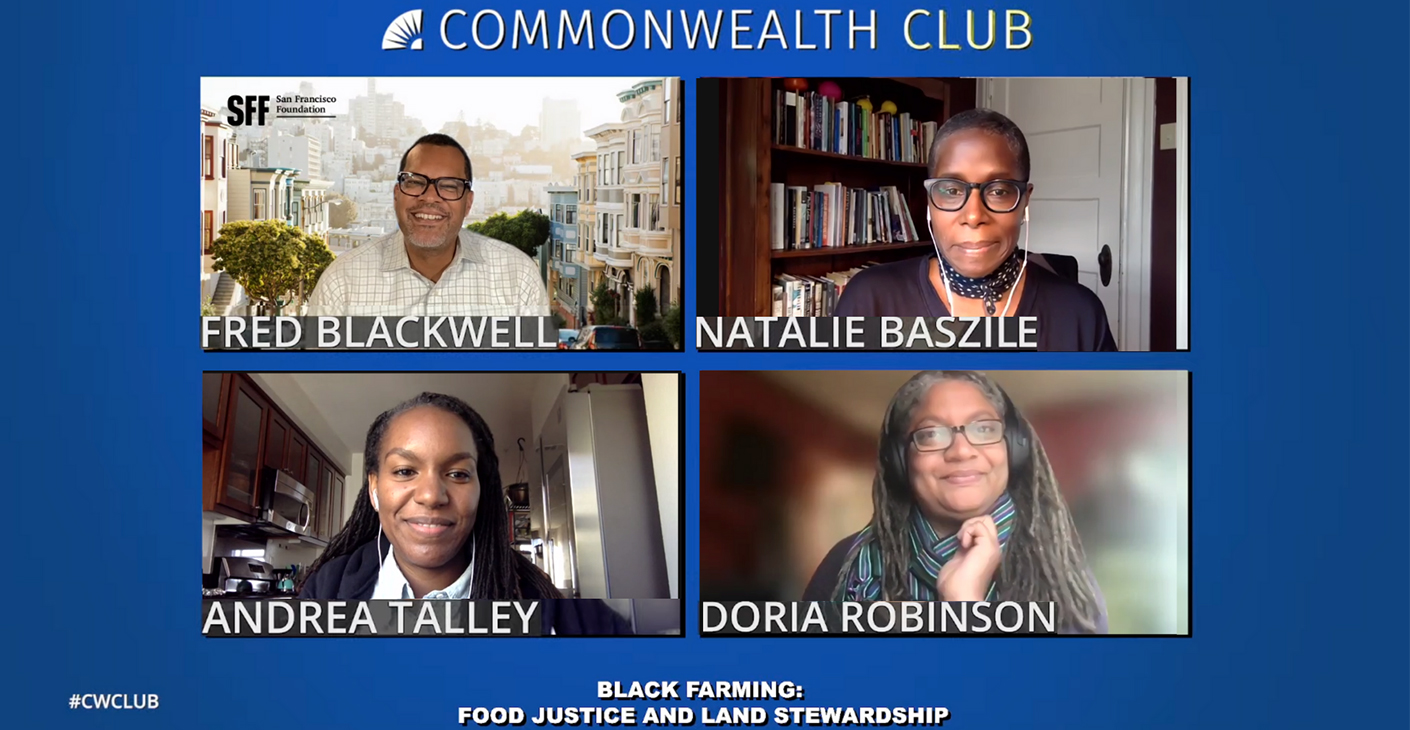On November 8, San Francisco Foundation and The Commonwealth Club of California held a virtual briefing, Black Farming: Food Justice and Land Stewardship. The event was made possible by generous donations to SFF’s Bay Area Leads Fund, which supports our leadership work to advance racial equity and economic inclusion in the Bay Area. SFF’s CEO, Fred Blackwell, introduced the event, which was moderated by SFF donor and author, Natalie Baszile, in conversation with representatives from two SFF grantees, Urban Tilth and Mandela Grocery Cooperative.
Doria Robinson, executive director of Urban Tilth, shared her family’s Great Migration history, moving from Louisiana and Iowa, where they had small farms and grew their own food, to Richmond, California, looking for something better. In Richmond, there was only one grocery store serving 100,000 people. The term “food desert” is no longer accurate, she stressed, because there is now an abundance of “food swamps” filled with cheap junk food. And the concept of food apartheid is intentional, she pointed out, because it is profit — rather than feeding people — that determines if and when grocery stores open in certain neighborhoods.
The organization that Ms. Robinson leads, Urban Tilth, manages seven school and community gardens, as well as small urban farms where community members can grow and distribute local produce. Each week, their gardens feed 500 local families. They have transformed Richmond and converted desolate spaces into thriving land. Urban Tilth works with local BIPOC farmers to bring food into Richmond. “It’s our duty to keep as many Black farmers as possible on their land so that we can nurture the lineage of people of color, of native people,” said Ms. Robinson. “We need that lineage to understand where we ultimately need to go.”
Andrea Talley, worker-owner of the Mandela Grocery Cooperative, described how West Oakland, once known as the Harlem of the West, was cut off from healthy food options by the 1990s. At that time, residents had to travel three miles just to get to the nearest grocery store. To address this void, three local women opened a small farmer’s market at the West Oakland Bart station parking lot. By 2009, they were able to open the Mandela Grocery Coop — a thriving grocery store where customers can find healthy, organic food grown by local Black and BIPOC farmers. The coop offers discounts on groceries for residents who live in local public housing units, and for those who pay with food assistance. Every Sunday, the coop also distributes 50-75 grocery bags to local families. “We are resilient. We can do better, and we are the solution,” said Ms. Talley. “Mandela came out of this spirit.”
You can watch a recording of the event on SFF’s YouTube page.
Here are ways to help:
- Review our Black Farming Give Guide.
- Give now through Donor Center if you are an SFF donor.
- Contact SFF for more giving recommendations: donorservices[at]sff.org.


